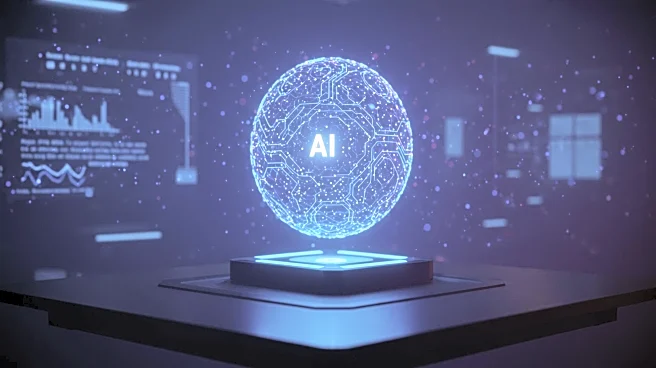What is the story about?
What's Happening?
Sam Altman, CEO of OpenAI, recently discussed the challenges faced during the rollout of GPT-5 and the company's future ambitions. During a dinner with reporters, Altman acknowledged the backlash from users following the update, which led to the reintroduction of the previous model, 4o, for paying subscribers. Despite the rollout issues, OpenAI's API traffic doubled, and ChatGPT continues to grow in user numbers. Altman emphasized the importance of maintaining a balanced approach in AI interactions, avoiding extreme ideological biases. OpenAI plans to expand into consumer hardware, brain-computer interfaces, and social media, with ambitions to acquire Chrome if Google is forced to sell. Altman also highlighted the need for more GPUs to support OpenAI's scaling operations and mentioned plans to spend trillions on data center construction.
Why It's Important?
The developments at OpenAI are significant for the tech industry and society at large. The rapid growth of ChatGPT, now reaching over 700 million users weekly, underscores the increasing reliance on AI technologies. OpenAI's expansion into hardware and social media could reshape consumer interactions with technology, potentially influencing market dynamics and user experiences. The company's focus on maintaining a neutral stance in AI responses is crucial for ethical considerations, ensuring diverse user needs are met without promoting specific ideologies. Additionally, the planned investment in data centers highlights the growing demand for computational resources, which could impact the tech infrastructure landscape.
What's Next?
OpenAI's future plans include exploring brain-computer interfaces, potentially rivaling Elon Musk's Neuralink, and developing standalone applications beyond ChatGPT. The company aims to create a more engaging social media experience with AI integration. As OpenAI continues to scale, securing additional GPUs remains a priority to support its operations. The potential acquisition of Chrome could further expand OpenAI's influence in the tech industry. Stakeholders, including tech companies and regulators, will likely monitor these developments closely, considering the implications for competition and innovation.
Beyond the Headlines
The ethical dimensions of AI interactions are becoming increasingly important as OpenAI navigates user relationships with ChatGPT. The company's commitment to avoiding exploitation of users with fragile mental states reflects broader concerns about AI's impact on mental health. OpenAI's approach to maintaining a balanced ideological stance in AI responses could set a precedent for other tech companies, influencing industry standards for ethical AI deployment. The expansion into brain-computer interfaces raises questions about privacy and the future of human-computer interaction, potentially leading to new regulatory challenges.














